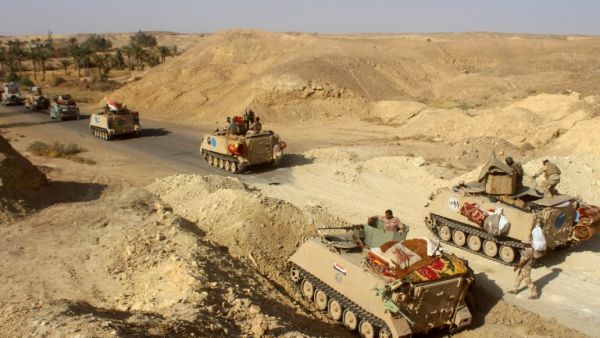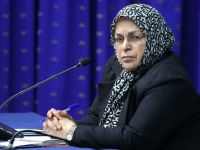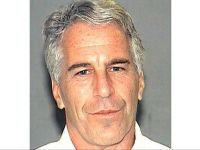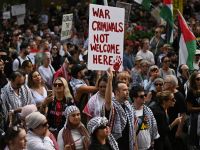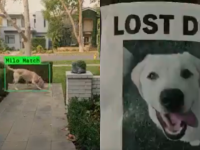The men here greet with a firm handshake, a few words of friendship and kisses on the cheek. Appearances indicate that the Kurdish Peshmerga and Iraqi army troops are close allies with full confidence in each other, for the moment.
"We get along very well," says a young Iraqi officer, who has just finished his lunch and who gives his name only as Ali. "There's no conflict between us, is there?"
The Peshmerga and the Iraqi army are currently working "hand in hand" towards their joint goal of liberating the northern Iraqi city of Mosul from Daesh.
Iraqi troops have recently been deployed to the front in an area under Kurdish control. Captain Ali is part of an Iraqi unit scouting out the lie of the land some 40 kilometres to the east of the city.
There are other indications that the long-announced assault on this Islamic State bastion is about to start. Trucks are to be seen bringing Iraqi troops to the front line.
"We're ready," says Peshmerga Arif Tayfor, the commanding officer of some 30 kilometres of the front line near Erbil, the capital of the Kurdish autonomous region in northern Iraq.
This offensive could turn into the largest military campaign since the toppling of Saddam Hussein in 2003.
If Mosul falls, Daesh - the Arabic acronym for Daesh - would lose its last stronghold in Iraq and would have been effectively defeated on Iraqi territory at least.
Among the forces assembling for the assault, no one doubts that Mosul will soon be freed from the jihadis. Nevertheless to the outside observer the coalition of allies assembled could scarcely be more varied.
Alongside the Peshmerga and Iraqi army there is an array of Sunni and Shia militias aiming to have a say in the outcome, and the Turks, who have deployed in the neighborhood to the alarm of the government in Baghdad.
The US-led international coalition will provide air support, and fighters of the Kurdistan Workers' Party (PKK), which has been locked in a decades-long battle with the Turkish government, could also intervene.
While all these "partners" currently have a joint immediate aim, each has its own long-term interests.
Over recent years the Peshmerga, backed by supplies from international allies, have seized areas that they aim to incorporate into their region. They aim to add to this in the looming offensive at the expense of Baghdad.
Tayfor denies that they aim to take Mosul, pointing to a clear agreement that Kurdish forces will remain outside the city, which is home to a Kurdish minority.
"We're supporting the Iraqi army," the 65-year-old officer says, playing ceaselessly with his string of prayer beads. "But they are the ones who will force their way into Mosul."
The assault is expected to be difficult, despite the fact that there are only an estimated 4,000 Islamic State fighters in the city. They are reported to have dug in well and to have created a system of tunnels, with booby trap explosives planted everywhere.
"If Daesh puts up a fight, the battle could last for up to three months," Tayfor believes.
Whether the Iraqi forces will be able to take Mosul is the question. While they have had recent US training, they needed the help of Shia militias supported by Iran to take back Fallujah and Ramadi in eastern Iraq from Daesh over the past year.
Shia involvement in Mosul would be problematic. The city is Iraq's largest Sunni centre, a fact that helps to explain support for Daesh as they advanced in 2014.
"If they enter the city, all agreements will collapse," says Atheel al-Nujaifi, the head of the local Sunni units. Fighting could even break out among the attacking allies, he warns.
In that event, the Peshmerga might intervene, and even the Turkish forces could become directly involved. Turkey's refusal to withdraw its forces has led to discord with Baghdad.
And the PKK fighters to the city's north-west could then also mobilize in response.
The Shia militias, which go by the name the People's Mobilization, do not give the impression of wanting to stay out of the battle.
"The People's Mobilization will participate in the liberation of Mosul," spokesman Ahmed al-Asadi says. "We will make the earth shudder under the feet of the Daesh fighters."
But he too acknowledges that the Iraqi army must take the lead in the assault.
There are Shia among the Iraqi troops commanded by Captain Ali, as is shown by a flag bearing the image of Imam Hussein, who was killed in the seventh century and is today revered by Shiites as a martyr.
Ali sees no great significance in the flag. "It's just there to boost troop morale," he says, and Peshmerga commander Said Shukur is happy to pose next to it for a photograph.
"Iraq has many groups. This is their flag, after all. Anyone fighting Islamic State is welcome here," Shukur says.


